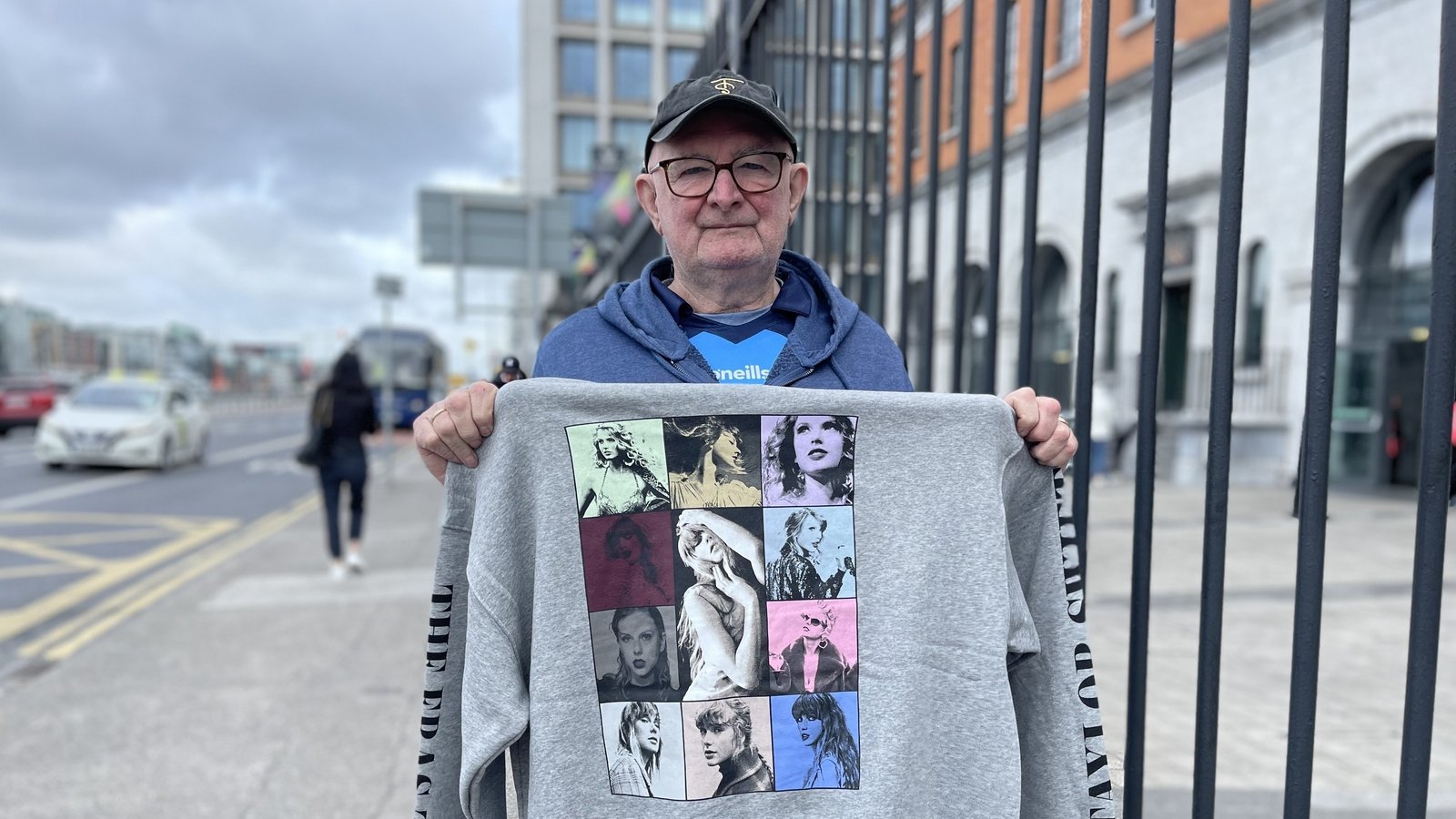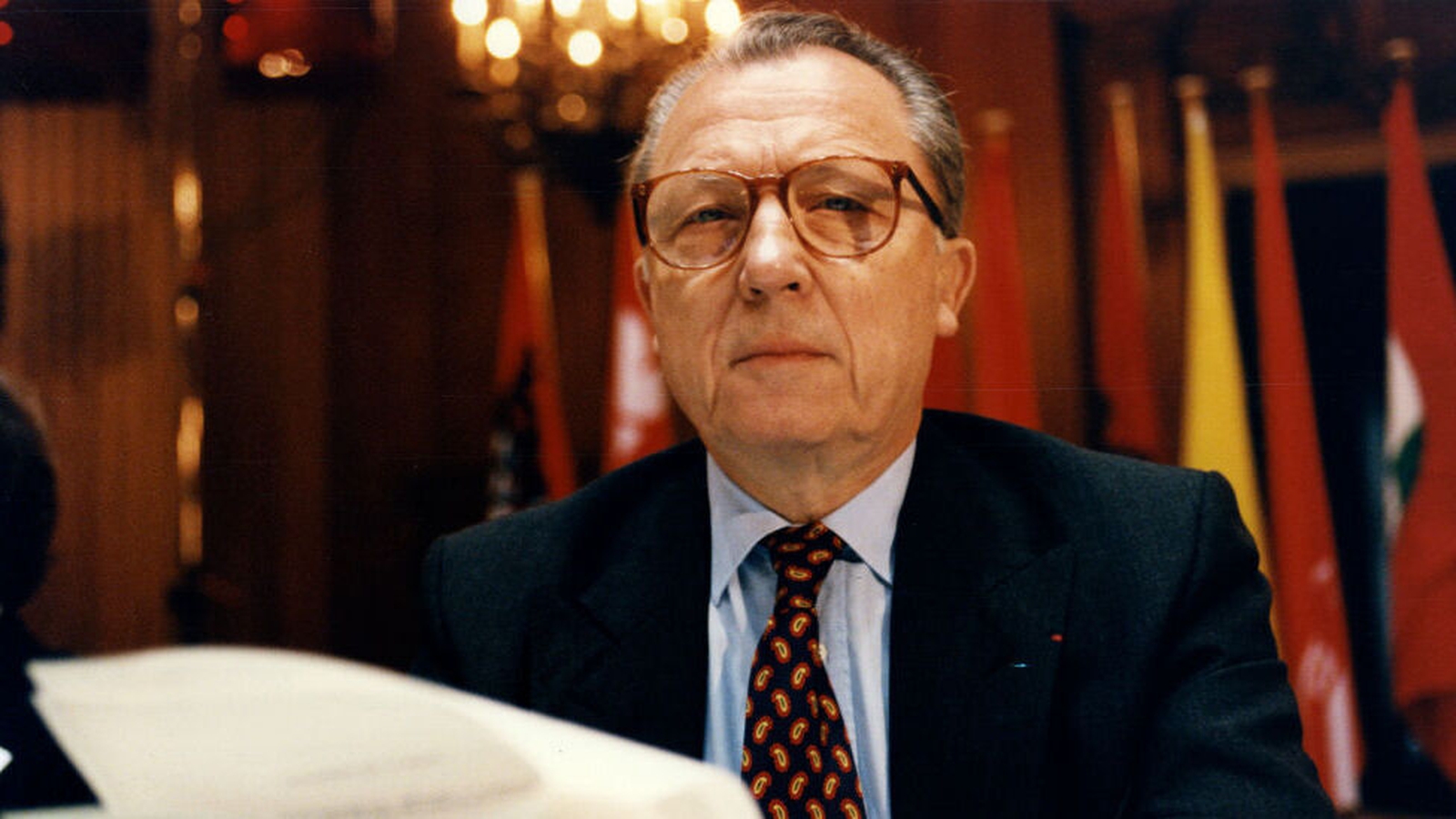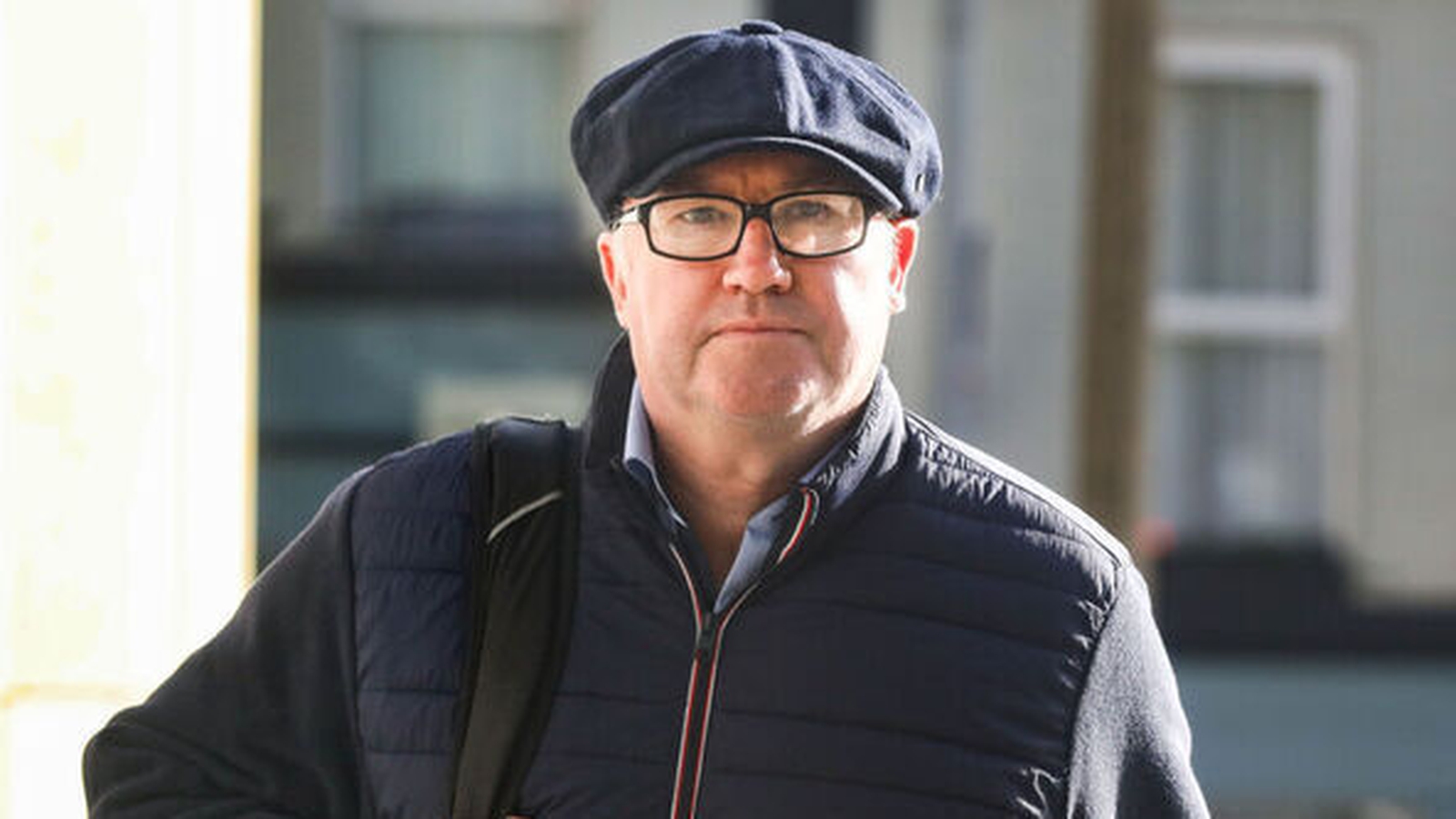A big week in the trials of Donald Trump
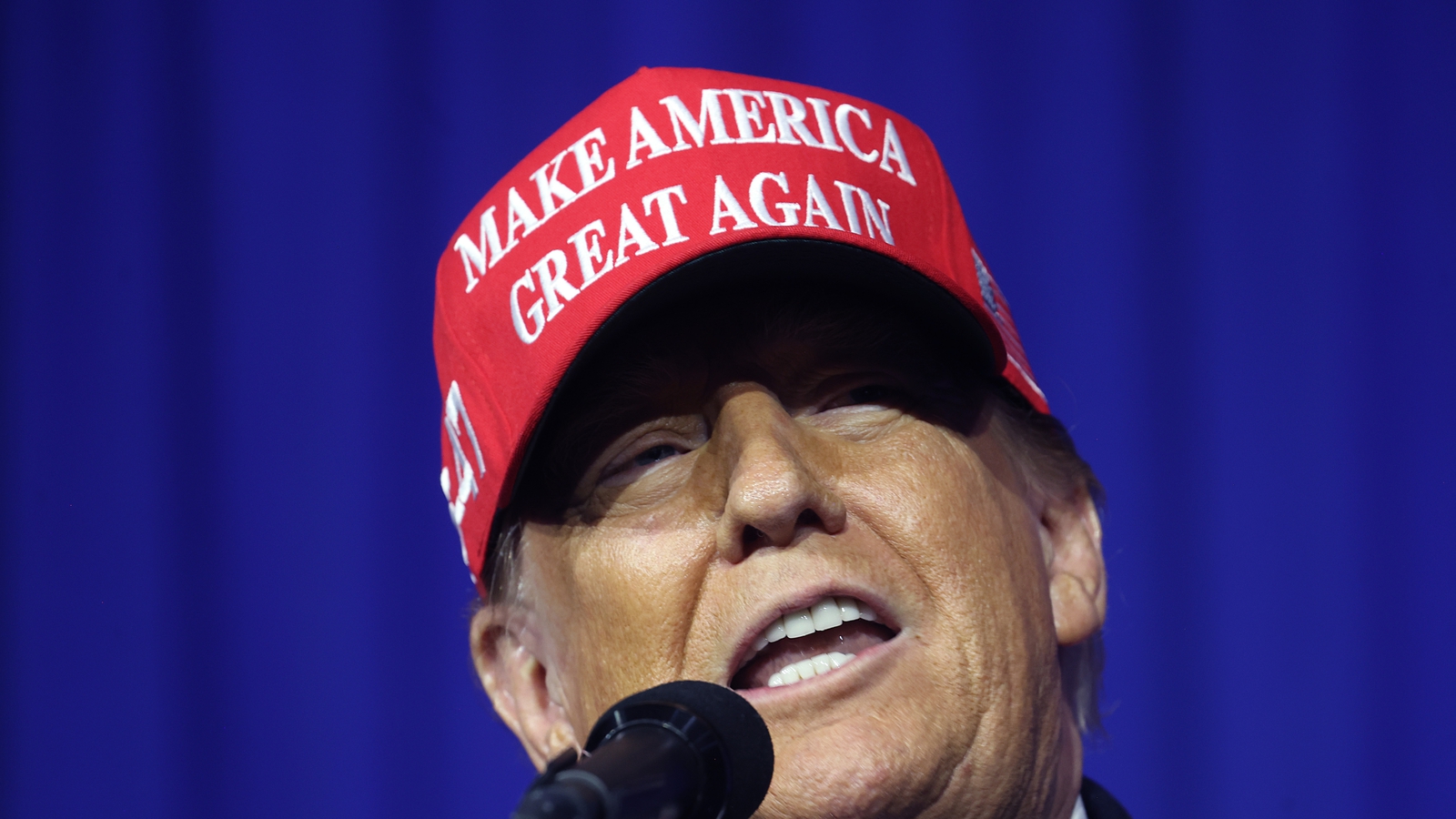
Let’s start with the fines – $354,000,000 (€324,000,000). That’s a lot of money for anyone to come up with, billionaire or not.
And that’s without interest. Because in New York fines come with interest attached until they are paid in full. And the start date for the interest can be backdated. Which is what happened in the Donald Trump case.
There were several lumps of money with different interest start dates. The biggest lump – $168 million (€155m) – had a start date in March 2019. That’s four years of compounding.
Back of the postage stamp calculations say the interest bill to date is in the region of $100 million (€92m).
Then throw in the $88 million (plus interest) he has been fined in the E. Jean Carroll sexual assault and defamation cases, and you are well north of half a billion.
Of course Mr Trump is appealing. But in New York you have to put up or shut up before you can appeal a civil case.
So you have to pay into a court account the full amount of the fine, or raise a bond that will cover the full amount – but they come with a hefty price tag in interest rates.
Business magazine Forbes estimated Mr Trump had about $460 million (€426m) in cash in the bank last September. This was part of an estimated net worth of $2.6 billion (€2.41) the magazine attributed to him. Most of that value is in Trump brand properties.
He paid cash to the court in appealing the first E. Jean Carroll (sex assault) case.
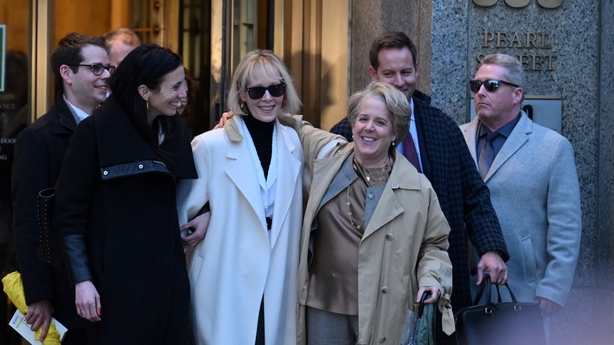
The subsequent $83 million (€77m) defamation ruling was not lodged by the court until last week, so he has until early March to pay or get a bond in place.
Similarly the $354 million (€328m) business fraud fine-clock will start running when the judgement is formally lodged in court, and then he has 30 days to pay up and make an appeal.
If Forbes was right last September, Mr Trump doesn’t have all the cash he needs. And he is most unlikely to spend all the cash he has – the whole point of having cash is to have cash, right?
You never know what you might need it for, and locking it away in a court case for an appeal is not very …appealing?
So he will probably have to raise bonds, but even that requires money – 1% of the bond amount per annum in premium. And the bond companies issue a bond at 120% of the court required amount – they say to include post-appeal interest charges (but it also of course adds to the premium cost).
The website of one bond company, Pedersen and Sons advises potential appellates in New York as follows: “Decide whether they want to put up collateral or produce a financial statement to see if they can obtain a bond based on a signature.
“If they cannot obtain the bond based on a signature, then the party can deposit collateral.
“Acceptable forms of collateral are a cash deposit held by the surety; an irrevocable letter of credit from a bank acceptable to the surety in the surety’s format; a pledge of publicly traded, non-retirement account securities; and real property (this can be a form of collateral in certain situations).”
This presents some issues for Mr Trump, because of the nature of the judgement that he is appealing.
Would a bond company accept a signature on an amount this large? From anyone? But particularly from someone who has been found guilty of cooking the books to inflate his own assets?
Then it moves to collateral. The judgement bans Mr Trump and his companies from doing business with any bank registered to do business in New York, which limits the range of potential lenders. Over the years most of them have shied away from Mr Trump anyway.
What about real property as collateral – Mr Trump has lots of that?
Donald Trump has built his image, his mystique, his public persona – and perhaps even self image – on the notion of being a successful businessman, the “most successful person ever to run for the presidency”, in his own words. This judgement begs to differ.
Indeed, but again the case being appealed is one in which he was found guilty of inflating the value of his properties to get cheaper bank loans and insurance. Not a good look when you are essentially trying to borrow money.
Which leaves the cash holding – but that’s not enough to cover the full amount, and cash moves up and down, so may not be acceptable as surety unless its bolstered through selloffs.
Which raises the prospect of selling off some property to raise cash. Needless to say, in these circumstances it would count as a fire sale – a distressed seller never gets top dollar. Especially from his rival New York property developers.
Who might pay Mr Trump full price – and why – are interesting questions.
Other assets to be hawked or pawned include aircraft (though the Trump force one plane is quite elderly), and homes in New York, Florida and the Caribbean.
But it doesn’t help the court case found that Trump massively inflated the value of his triplex apartment in the Trump Tower – mostly by massively overestimating the floor area of the place he lived in.
Have a look at the very first paragraph of Judge Arthur Engeron’s ruling, to see how lenders might be a little reluctant to flock to the former Presidents cause: “Donald Trump and entities he controls own many valuable properties, including office buildings, hotels, and golf courses. Acquiring and developing such properties required huge amounts of cash.
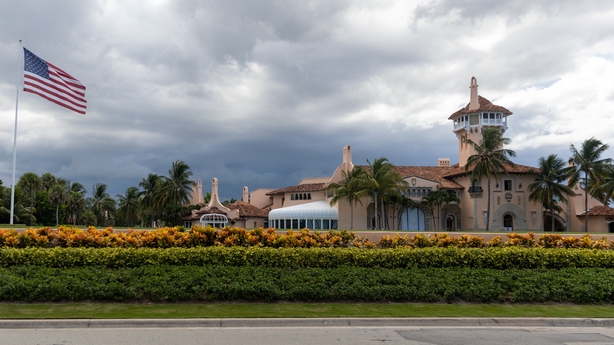
“Accordingly, the entities borrowed from banks and other lenders. The lenders required personal guarantees from Donald Trump, which were based on statements of financial condition compiled by accountants that Donald Trump engaged.
“The accountants created these ‘compilations’ based on data submitted by the Trump entities.
“In order to borrow more and at lower rates, defendants submitted blatantly false financial data to the accountants, resulting in fraudulent financial statements.
“When confronted at trial with the statements, defendants’ fact and expert witnesses simply denied reality, and defendants failed to accept responsibility or to impose internal controls to prevent future recurrences.”
Later in the ruling, Judge Engoron gives a more particular account of Mr Trump’s approach to valuing his Florida residence, Mar-a-Lago, which was valued in his financial statements as if it were a private residence – even though he had signed up to a type of tax break that meant it could not be developed as anything other than a social club.
“When confronted with the 2002 deed in which he signed away, in perpetuity, the right to use or develop Mar-a-Lago as anything other than as a social club, in exchange for a conservation easement tax benefit….. Donald Trump insisted that he believed Mar-a-Lago is worth “between a billion and a billion five” today, which would require not only valuing it as a private residence, which the deed prohibits, but as more than the most expensive private residence listed in the country by approximately 400%.”
You see the problem when it comes to dealing with financial institutions?
Not only are they dealing with financial risk, but also the reputational risk of being identified as people who would lend to Mr Trump after a judgement like this.
And the judgement restricts what he can do in terms of the Trump Organization and its business assets.
Not only is Mr Trump and his two sons excluded from running the business (or any other in New York) for the next couple of years, but the court has also stuck a “minder” on the company.
In this case its a former Judge, Barbara Jones, who has been acting as an overseer of the companies for the past year (and stopped an effort to move them out of New York state).
She will also appoint an independent compliance director, to keep an eye full time on how these companies are managed, and draw up standards and protocols for financial reporting. The company will have to pay for this independent compliance officer.
Ah yes – the sons. Both Donald Junior and Eric Trump, as officers of the Trump Organization, have been fined $4 million (€3.7m) each, and banned from running a business in New York for two years.
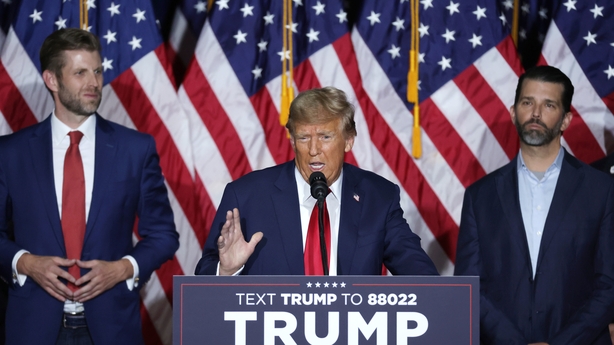
The Judge was not impressed with their business acumen or skills.
He wrote of Donald Trump Junior: “In his capacity as trustee, Trump, Jr. certified that he was ‘responsible for the accompanying statement of financial condition … and the related notes to the financial statement in accordance with accounting principles generally accepted in the United States of America’. He did this every year from 2017 to 2021 despite having no knowledge of the requirements of GAAP, never having been employed in a position that required him to apply GAAP, and never having received any training on applying GAAP.”
Eric Trump also seems to have inherited difficulties with property valuation.
Judge Engoron highlighted his approach to valuing a site that the company thought might accommodate seven mansions at a place called Seven Springs, which he, in writing, advised the chief accountant at the Trump Organization, Jeffrey McConney, to put into the accounts at a valuation of $161 million (€149m), even though “emails demonstrate that Eric Trump was aware of a valuation by a professional appraiser, engaged by the Trump Organization, who valued the hypothetical development at approximately $5.5 million.
“By 8 September 2014, a mere four days before Eric Trump advised McConney to continue using $161 million as the value for the seven-mansion development in the 2014 SFC, David McArdle of Cushman & Wakefield had completed an appraisal for the property and delivered a verbal estimate to Eric Trump of $14 million.
“Eric Trump’s testimony that he had very limited involvement in the appraisal work that McArdle performed on Seven Springs and Briarcliff was shown to be false when he was confronted with the ample contemporaneous documentary evidence demonstrating otherwise.”

Donald Trump has built his image, his mystique, his public persona – and perhaps even self image – on the notion of being a successful businessman, the “most successful person ever to run for the presidency”, in his own words. This judgement begs to differ.
And it wasn’t the only legal action in Trumpworld this week. Indeed it was very busy on several legal fronts.
On Thursday another New York court set a definitive date for the start of Donald Trump’s first criminal trial.
Jury selection will begin on 25 March in the case being brought by Manhattan DA Alvin Bragg, who has charged Trump with felonies under New York’s campaign financing laws.
Again, he is alleged to have provided false financial accounts, this time to cover up payment of $130,000 in hush money to former porn movie actress Stormy Daniels.
It is not a crime in New York to pay hush money to a former porn movie actress – or anyone else. But it is a crime to publish false accounts.
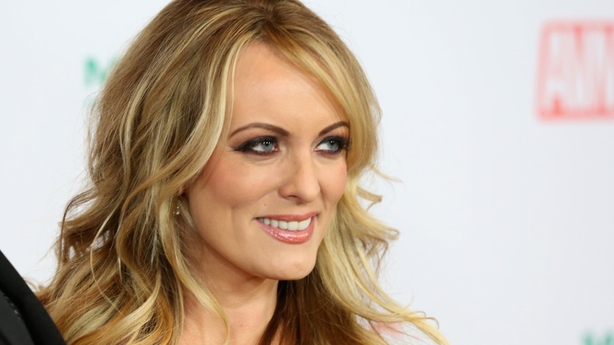
And that is particularly so if the alleged fraud was committed in order to effect the outcome of an election – in this case the 2016 Presidential election.
The payoff to Ms Daniels was made just weeks after the notorious “access Hollywood” tape emerged, and about a month before voting day in the Presidential election.
The DA’s office claims Trump wanted to avoid another scandal, and arranged for his then in-house lawyer Michael Cohen to pay off Ms Daniels.
Cohen was reimbursed via the Trump Organization’s accounts for “legal fees”.
He later went to jail over this business, and turned against his former boss, who left him to carry the can.
It was Cohen’s testimony to a congressional committee in 2019 that Trump systematically overvalued his properties that set in motion the investigation by the New York Attorney General Letitia James that resulted in Friday’s huge fines.
Cohen says he has “the receipts”, documentary evidence that he believes will corroborate his account in the Stormy Daniels affair, and lead to Mr Trump’s conviction. (Cohen now runs a podcast, an early edition featuring a lengthy interview with Stormy Daniels).
The latter part of last week also saw courtroom action in the state of Georgia, where Fulton County District Attorney Fani Willis has been trying to mount a sprawling criminal case against Trump and 18 other co-defendants, using the Racketeer Influenced and Corrupt Organizations Act, better known as the RICO Act (made famous for being used against the New York Mafia by, among others, former US Attorney Rudy Giuliani, now a co-defendant in this case).
But Ms Willis hit a big roadblock just before Christmas when another of the co-defendants, Michael Roman, alleged that she had a problem – namely that she had employed her boyfriend as a prosecutor, paid him handsomely from public funds and then benefitted from those public funds by going on expensive holidays with him.
He wants her booted off the case – which would cause it to be delayed until well after the presidential election.
Mr Roman is a former White House and Trump campaign official, who the January 6 Committee report says was a key organiser of the so called “fake electors”, alternative lists of electoral college voters who would vote for Mr Trump instead of Joe Biden in a handful of close call states, like Georgia, and hand Mr Trump the presidency.
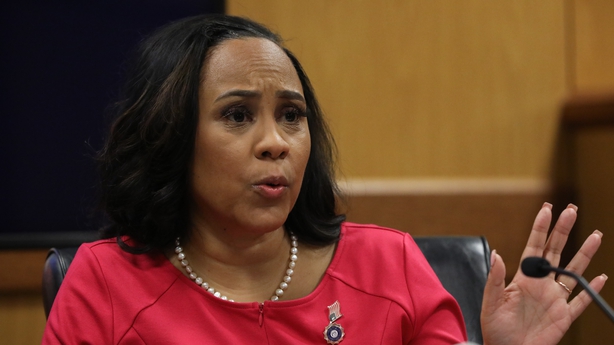
Ms Willis says she and Nathan Wade, he now ex-boyfriend (but still special prosecutor on the case) did not become intimate until after she had hired him and that she paid her own way on the trips. She says Mr Wade got paid less than the going rate and had his earnings capped.
In a day of tawdry testimony in a hearing – not a trial – she and Mr Wade faced questioning on their sex lives and had their banking and earnings information read out in open court – and on national television.
Two days of hearings didn’t appear to have advanced Mr Romans claims – notably there was nothing resembling solid evidence that Ms Willis and Mr Wade had wrongly benefitted from public funds.
But they have certainly damaged the reputation of Ms Willis.
Even if the judge finds nothing to merit kicking her off the case, this sordid business will serve as a warning to others who might seek to prosecute Donald Trump of the kind of things that might await them; that the slightest sign of weakness will be pounced on.
It should be noted that Ms Willis is already living under police guard at all times and has to move house frequently because of death threats.
So far federal special prosecutor Jack Smith hasn’t come under sustained personal attack in the courts, the media, or physically (though he too is under police protection).
But his court cases are slipping into the twilight zone and may not get to court before the presidential election.
Mr Smith has been involved in two sets of legal wrangling over the past ten days: one in Florida, where the classified documents case is proceeding painfully slowly (the judge in the case was appointed by Mr Trump, and is under scrutiny – two of her previous rulings in the case having been overturned by a higher court on appeal).
Mr Smith is currently trying to stop disclosure to Trump of witness identities, on the grounds that it could expose witnesses to potential threats and coercion.
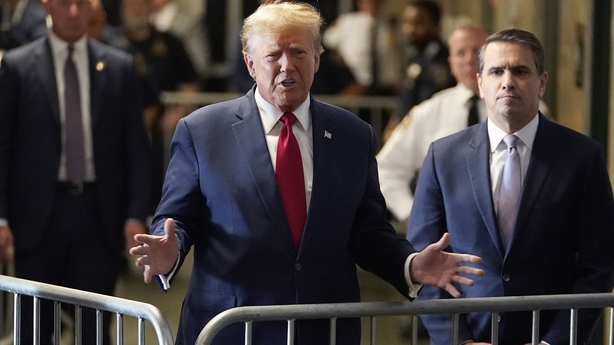
In the other federal case, that of election interference – in which Donald Trump is the sole defendant and faces just four charges – the special prosecutor is on the back foot.
The case was due to begin on 4 March, but has been put back indefinitely.
Mr Trump has been arguing that as president he had unlimited immunity from prosecution.
A DC appeals court ruled against him, but he has appealed that ruling to the Supreme Court, causing the delay to the start date.
We are now awaiting a decision from the Supreme Court as to whether it will hear the appeal, or leave the decision of the lower court stand. Either way the uncertainty has
forced the indefinite delay of this case, arguably the most important of all the cases, as it directly deals with the events of January 6th 2021, and the attack on the US Capitol. Again Trump’s aim is to delay the case until after the Presidential election.
So of the four criminal cases, covering 91 felony charges against the former president, only one is on track to start, one hangs in the balance, with a Georgia judge not likely to decide about Ms Willis for several weeks.
While the two federal cases are stuck in the judicial undergrowth: Florida won’t make it to court this year at the current snails pace in the pre-trial motions, while the DC election interference case is in limbo, awaiting the views of five of the nine supreme court justices – the number required to take up or decline Trump’s immunity appeal.



